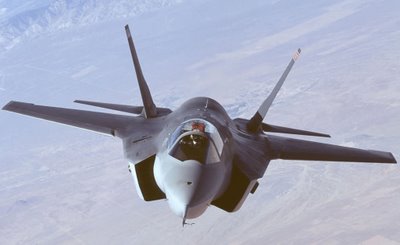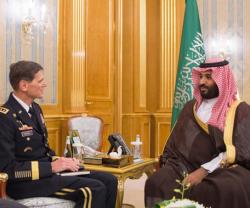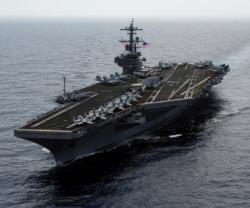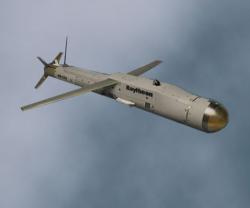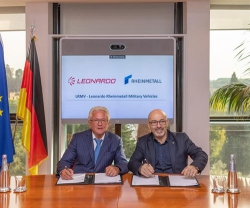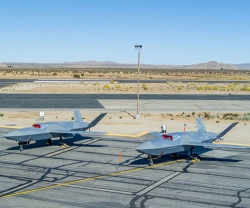The US has offered to add Israeli systems and munitions to a new US-built fighter jet and deliver it to Israel by 2015, provided a deal is sealed in coming months.
Lockheed Martin Corp, maker of the radar-evading F-35 Joint Strike Fighter, would tie in Israeli-built command, control, communications, computer and intelligence systems for a unique version of the jet for sale to Israel, Jon Schreiber, a senior Pentagon program official, told Reuters Monday.
The US also would integrate bombs that use an Israeli precision guidance kit called Spice along with Python 5 air-to-air missiles made by Israel's Rafael Advanced Defense Systems, Schreiber said in an interview.
In addition, he said, Israel would get a relatively inexpensive path for hardware and software upgrades to add future weapons.
On the other hand, the US does not plan for now to put an Israeli electronic warfare system aboard the F-35, which is in early stages of production.
"Some time in the future, if policy changes, or things change, that could change as well," said Schreiber, who heads the F-35 program's international program for the Pentagon.
Dropping plans for incorporating electronic warfare systems would be a significant switch for Israel, which bought modified US-built F-15s and F-16s to incorporate such know-how.
The Pentagon and Lockheed Martin are eager to wrap up an F-35 deal with Israel, which is tentatively planning to buy an initial 25 F-35s in fiscal 2012 with an option for 50 more.
The single-engine aircraft, designed to avoid detection by radar, could play a role in any Israeli effort to knock out what it regards as the threat to its existence posed by Iran's nuclear program.
Schreiber said he met Israeli procurement officials in New York last week to discuss a "roadmap" for the proposed government-to-government F-35 sale.
The US planned to submit its offer and prices formally in January, he said. Israel must approve this no later than March and reach a deal with Lockheed on integrating the Israeli weapons and other systems by June or July, he added, to buy in fiscal 2012 for delivery in 2015.
The Israeli defense ministry did not immediately return a telephone call seeking comment. Lockheed had no comment.
Schreiber declined to discuss prices other than to say that Israel would buy the basic aircraft at the same price as the US and its co-development partners, plus a standard government-to-government sales commission and whatever the integration of its systems might cost. Israel uses US security assistance to buy much of its arsenal.
The US co-developed the F-35 with eight foreign partners -- Britain, Italy, the Netherlands, Turkey, Canada, Australia, Denmark and Norway. Together, the core group is projected to buy about 730 aircraft.
Schreiber said the US had not yet begun to market the F-35 to any other potential buyers in the Middle East. The US is committed to maintaining Israel's "qualitative" military edge over any regional rival.

